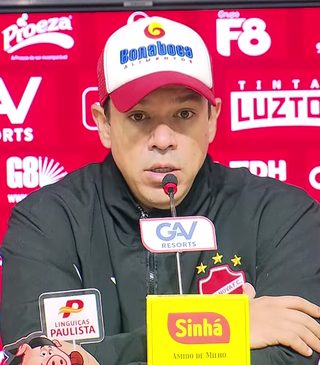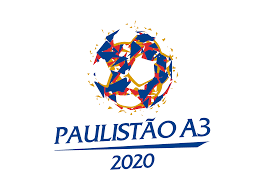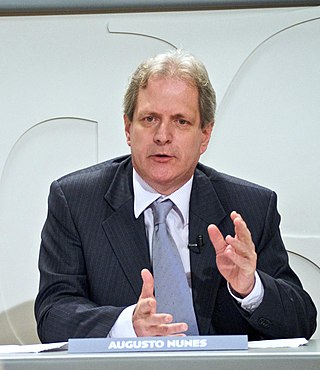
The Primeiro Comando da Capital is a Brazilian organized crime syndicate. According to a 2023 The Economist report, the PCC is Latin America's biggest drug gang, with a membership of 40,000 lifetime members plus 60,000 "contractors". Its name refers to the São Paulo state capital, the city of São Paulo.

Comando Vermelho, also known as CV, is a Brazilian criminal organization engaged primarily in drug trafficking, arms trafficking, protection racketeering, kidnapping-for-ransom, hijacking of armored trucks, loansharking, irregular warfare, narco-terrorism, and turf wars against rival criminal organizations, such as Primeiro Comando da Capital and Terceiro Comando Puro. The gang formed in 1979 out of a prison alliance between common criminals and leftist guerrillas who were imprisoned together at Cândido Mendes, a maximum-security prison on the island of Ilha Grande. The prisoners formed the alliance to protect themselves from prison violence and guard-inflicted brutality; as the group coalesced, the common criminals were infused with leftist social justice ideals by the guerrillas. In 1979, prison officials labeled the alliance "Comando Vermelho", a name which the prisoners eventually co-opted as their own. In the 1980s, the gang expanded beyond Ilha Grande into other prisons and the favelas of Rio de Janeiro, and became involved in the rapidly growing cocaine industry. Meanwhile, Brazil's shift towards democracy and the eventual end of the military dictatorship in 1985 allowed the leftist guerrillas to re-enter society; thus, the CV largely abandoned its left-wing ideology.
Amigos dos Amigos is a criminal organization that operates in the Brazilian city of Rio de Janeiro. It was started up in 1998 when a member of Comando Vermelho was expelled from the organization for ordering the murder of another member. The gang's main rivals are Comando Vermelho and Terceiro Comando Puro. ADA controls many drug selling points in the North and West zones.
Proibidão, which literally translates to "strongly prohibited", is a subgenre of funk carioca music originating from the favelas of Rio de Janeiro where it began in the early 1990s as a parallel phenomenon to the growth of drug gangs in the many slums of the city. The drug gangs sponsored DJs and baile funks in the favelas they controlled to spread respect and love for their gang as well as hate to the other gangs. The music that resulted is proibidão.
Marcelo Martelotte is a Brazilian professional football coach and former player who played as a goalkeeper. He is the current head coach of Sergipe.
Terceiro Comando was a Brazilian criminal organization engaged in drug trafficking in Rio de Janeiro. It was founded in the early 1980s and is a break-away faction of the Comando Vermelho.

Luis Eduardo Barros Cavalcanti, known as Dado Cavalcanti, is a Brazilian professional football coach and former player who played as a left back.

Marcelo Augusto Oliveira Chamusca is a Brazilian professional football coach and former player who played as a defensive midfielder. He is the current manager of Saudi Arabian club Al-Faisaly.
The 2017 Brazil prison riots were a confrontation between two criminal organizations, the Primeiro Comando da Capital (PCC) and Comando Vermelho (CV), and their allies within prisons and peripheries of Brazilian cities. Its emergence is linked to the methods of the PCC to conquer new territories for drug trafficking, which involve the collection of insurance and economic centralization and whose rigid pseudo-state organization finds strong resistance from regional criminal organizations, with predominantly decentralized organization.
The Santa Cruz Cartel is a Bolivian drug cartel and criminal organization, said to be one of the largest in the country, headquartered in Santa Cruz de la Sierra.
Ruy Santos Scarpino was a Brazilian football manager.
Dancing Brasil Júnior is a Brazilian children's reality television series based on the ABC celebrity dance competition Dancing with the Stars: Juniors, produced by Endemol Shine in partnership with BBC Worldwide.

The 2020 Campeonato Paulista Série A3 is the 27th season of the third level of the São Paulo state league under its current title and the 67th season overall.

Elias Pereira da Silva, also known as Elias Maluco, was one of Rio de Janeiro's most powerful drug traffickers. Maluco, a member of the criminal faction Comando Vermelho, commanded drug trafficking in thirty slums near Complexo do Alemão and Penha, Brazil. He was accused of killing over sixty people.
The Familia do Norte is a criminal faction that occupies northern Brazil and some regions in other countries such as: Colombia, Peru and Venezuela. It is considered the 3rd largest faction in Brazil, and the largest in the state of Amazonas, in addition to not having good relations with other Brazilian factions, having already entered into several faction wars.

The Guardiões do Estado, or the acronym GDE, is a Brazilian criminal faction. It operates in the state of Ceará.

The armed conflict for control of the favelas in Greater Rio de Janeiro or simply Civil conflict for control of the favelas is an ongoing conflict between Brazilian militias, organized criminal groups Comando Vermelho, Amigos dos Amigos, Terceiro Comando Puro and the Brazilian state.

Augusto Nunes da Silva is a Brazilian journalist, writer and commentator. He is one of Brazil's main conservative journalists.








